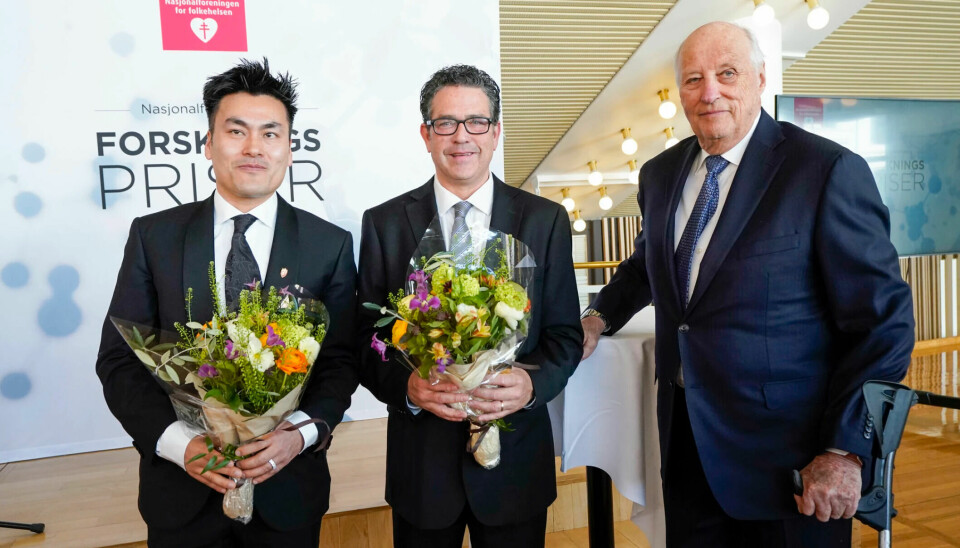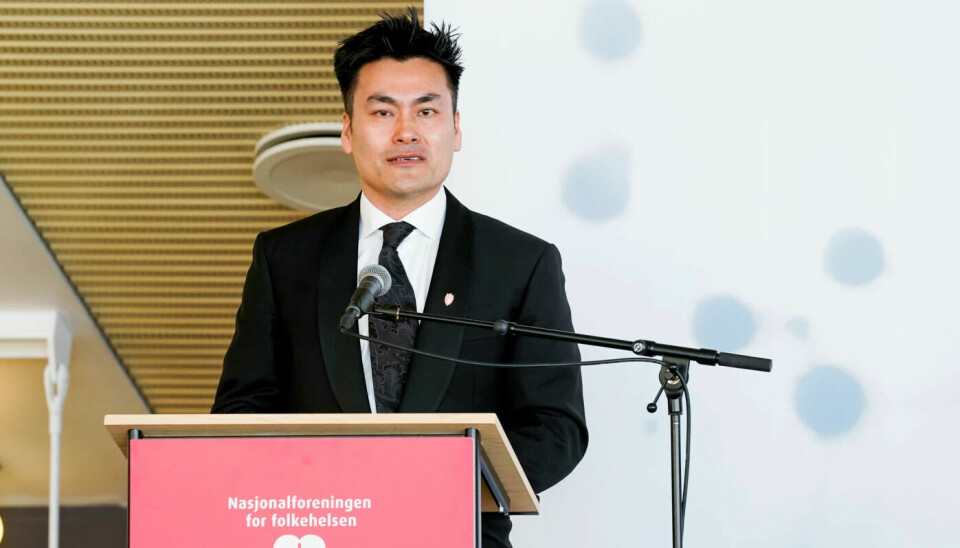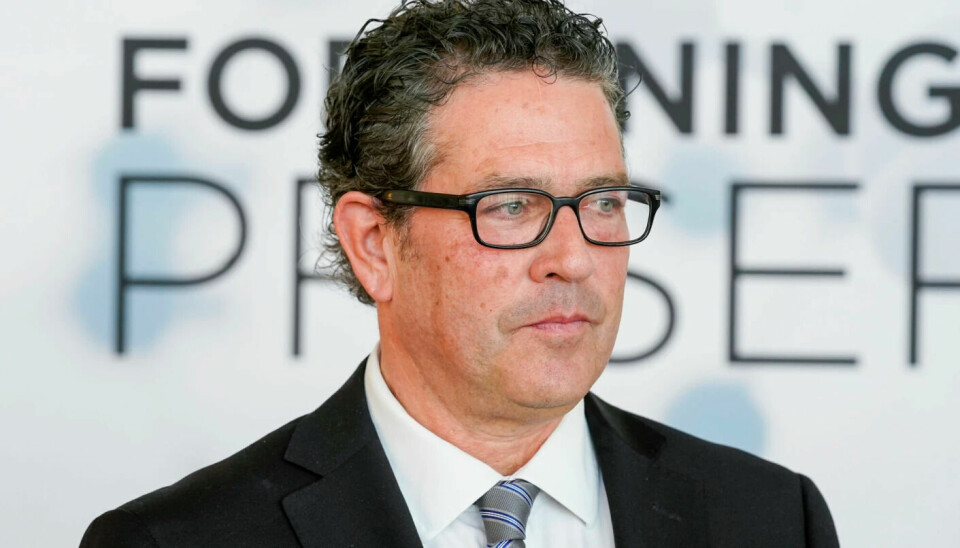
Received awards for groundbreaking research in dementia and heart health
Researchers Dan Atar and Evandro Fei Fang received awards for their research.
The Norwegian King Harald V recently presented the Dementia Research Award and the Heart Research Award on behalf of the Norwegian Health Association.
Since October 2017, Evandro Fei Fang has been employed as a researcher at the University of Oslo (UiO). There, he has established a very active group and conducts research on dementia at an internationally high level, according to the jury.
He receives the Dementia Research Award for groundbreaking research results and for his efforts towards good professional collaboration both nationally and internationally.
In this article from last year, written by UiO, a method from the research group of Evandro Fei Fang is described which gives hope for the treatment of Alzheimer's.

One of the most influential researchers in the world
Professor Dan Atar at Oslo University Hospital receives the Heart Research Award for groundbreaking research results over 30 years in cardiology. He is one of the most influential researchers in this field in the world, according to a press release (link in Norwegian).
“He works both to prevent heart attacks from happening, to limit the damage if it does occur, and to ensure that the patient has a good life afterwards,” Mina Gerhardsen, secretary general of the Norwegian Health Association, says.
The garbage truck of the brain
The main reason Fang receives the Dementia Research Award is his contribution over the last five years in establishing networks for knowledge exchange among dementia researchers.
His research team has come up with specific treatments that may be used for removing damaged mitochondria in the brain.
“We believe that a major reason we experience memory loss and other cognitive impairments as we age is that a lot of ‘waste’ accumulates in our brains over time. There is a garbage truck in the brain that normally clears this away when we are younger,” Fang says. “However, as we age, this garbage truck becomes less efficient.”
According to Fang, when the garbage truck's engine starts to wear out and malfunctions, we need to be able to repair it.
“We need to add energy that restarts the engine and gets this cleaning process in the brain going again,” the award-winning doctor says in a press release (link in Norwegian).

Heart attack
The common thread in Dan Atar's research work is what doctors call “ischemic damage to the myocardium”.
“This concerns the world's most common cause of death, namely heart attacks. ‘Ischemic damage’ means that too little oxygen is reaching the heart muscle. This happens approximately every second, worldwide, when a person has a heart attack,” he says.
Throughout his career, Atar has been part of what he calls a cardiac revolution, based on new knowledge and medical innovation.
An ageing population
“There has been new knowledge and innovation, both in prevention, treatment with medication, and in technological advancements, such as implants and catheter-based procedures, which have led to this tremendous change,” Atar says.
He emphasises that there is still room for progress.
“The usefulness of heart research and this field of knowledge will be further defined by the complex issues we have to deal with. Many of these are related to old age. It is a highly relevant topic,” he says.
———
Translated by Alette Bjordal Gjellesvik.
Read the Norwegian version of this article on forskning.no



































